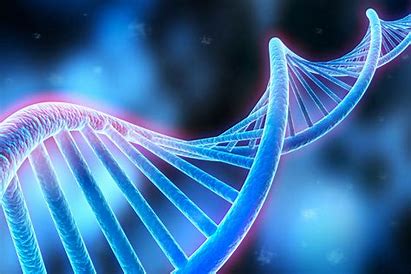- 21103 Vanowen St Woodland Hills, CA 91303 | Call us today!
- 310-879-9266
Properties and Values of Female Hormones
Allen Lawrence, M.A., M.D., Ph.D.
Advanced Wellness Medical Group
Phone: 310-879-9266 or 844-222-577
Properties and Values of Female Hormones
Estrogen
Basic Properties Of Estrogen In Women
- Creates endometrium to be ready for either pregnancy or menstruation, if no pregnancy
- Stimulates female sexual development at puberty
- Regulates menstrual cycles
- Moisturizes and plumps vaginal lining and tissue
- Reduces vaginal dryness; promotes lubrication
- Slows bone loss (Osteoporosis)
- Can help reduce incidence of heart attacks
- Lowers LDL
- Increases HDL
- Decreases lipoprotein(a) and homocysteine
- Increases moisturization of skin
- Anti-aging factor, slows the process of aging
- Increases sensitivity of progesterone receptors
- Affects more than 300 tissue systems in the body
- Uplifts mood
- Positively effects every neurotransmitter in the brain; including serotonin, dopamine, GABA
- Improves brain function, memory and motivation
- Improves verbal memory and ability to learn to new concepts, reasoning, and fine motor skills
Signs and Symptoms of Estrogen Deficiency In Women
Physical
- Hot flashes, flushing
- Night sweats
- Diminished libido
- Increases fatigue, tiredness
- Vaginal and/or bladder infections
- Incontinence
- UTI’s
- Forgetfulness
- Difficulty falling asleep; insomnia
- Headaches/migraines
- Reduces ability to concentrate
- Decreases verbal skills
- Irregular bleeding, spotting
- Testosterone imbalance
- Painful intercourse
- Osteoporosis
- Episodes of rapid heartbeat
Emotional
- Depression
- Anxiety
- Emotional instability
- Feelings of despair
- Crying
- Sadness
- Feeling of emptiness
Signs and Symptoms Associated with Estrogen
Dominance or Excess in Women
Physical
- Low libido
- Breast pain/breast cysts
- Breast adenomas
- PMS
- Fluid retention and/or bloating
- Heavy menstruation
- Irregular bleeding and/or spotting
- Blood sugar problem
- Sugar cravings
- Headaches/Migraines
- Sleep disturbances/Insomnia
- Fibroid tumors
- Hormonal cancers
- Weight gain/obesity
- Nausea
- Endometriosis
- Thyroid problems
- Gall bladder problems
- Nutrient deficiencies
Emotional
- Anxiety
- Nervousness
- Increased tension
- Irritability
- Mood swings
- Depression
Testosterone
Basic Properties Of Testosterone In Women
- Physical growth from childhood to adulthood
- Supports cardiovascular health
- Maintenance and repair of reproductive tissues
- Aggressive and competitive behaviors
- Maintenance and growth of bones
- Increases and protects bone mass and health
- Increases muscle mass
- Regulates body fat
- Decreases body fat (in post-menopausal women)
- Breast health
- Fertility
- Sex drive (libido and lubrication)
- Normal menstruation
- Vaginal health
- Development and maintenance of secondary sex characteristics
- Regulates mood
Deficiency of Testosterone
Testosterone Deficiency Levels Less Than 15 ng/dL
- Mood swings
- Increased anxiety and/or depression
- Changes in breast tissue
- Decreased thickness of hair
- Dry skin
- Weight gain
- Increase body fat
- Hypoactive Sexual Desire Disorder (HSDD)*
- Loss of libido (reduced sex drive)
- Muscle weakness
- Loss of muscle tissues
- Fertility problems
- Vaginal dryness
- Decreased sexual satisfaction
- Missed or irregular menstrual periods
- Osteoporosis (loss of bone density)
- Sluggishness
- Fatigue
- Memory loss
- Sleep disturbances (insomnia)
Common Conditions Associated With of Low Testosterone
- Depression
- Anxiety
- Chronic stress
- Thyroid disease
- Adrenal exhaustion
- Transition to menopause
- Long-term use of oral contraceptives and contraceptive patches
- Ovarian failure (natural, chemotherapy, radiation, eating disorders, menopause)
- Medication (anti-hypertensives and opiates)
- Tumors (such as the pituitary gland)
Testosterone Excess Greater Than 70 ng/dL
- Acne
- Mood swings
- Insulin resistance
- Elevated blood sugar (Hyperglycemia)
- Weight gain
- Excessive hair growth, usually on the face
- Male pattern baldness
- Deepening of voice
- Reduction of breast tissues
- Enlarged clitoris
- Infertility
- Loss of menstruation
- Obesity
- Polycystic Ovary Syndrome (PCOS)
- Vaginal dryness
- Masculinization
- Reduced HDL cholesterol
Causes Of Elevated Testosterone
- Over treatment with testosterone replacement therapy
- Steroid use and abuse
- PCOS
- Adrenal disorders (congenital adrenal hyperplasia)
- Adrenal or ovarian tumors
Symptoms of Testosterone Excess or Estrogen
Deficiency with Normal Testosterone In Women
Physical
- Acne/oily skin
- Facial hair
- Deepened voice
- Ovarian Cyst
- Hypoglycemia
- Mid-cycle pain
- Low HDL
- Thinning scalp hair
- Breast cancer risk
- Painful nipples
Emotional
- Agitated
- Angry
- Irritability
* HSDD is considered the most widespread sexual health problem among women. It is estimated to occur in 8% to 19% of women. It’s marked by fewer (if any) sexual fantasies and a lack of interest in sexual activity. It is often associated with personal distress, frustration, sadness, and loss of self-confidence and self-worth and self-value. Depression and fatigue often occur with HSDD. It is often associated with low testosterone and menopause. Testosterone hormone therapy can boost sexual desire in both pre-menopausal and post-menopausal women.
Progesterone
Roles and Properties of Progesterone In Women
- Decreases menstrual bleeding
- Decreases fat storage
- Anti-cancer; especially protective against breast cancer
- Increases the body supply of oxygen
- Helps prevent hardening of the arteries
- Improves brain structure and function and memory
- Increases metabolic rate
- Helps regulate water retention
- Required for conception and gestation
- Increases intelligence of fetus
- Mild sedative in large doses
- Protects against miscarriage
- Prevents and treats PMS
- Stimulates new bone formation
- Anti-aging to skin
- Inhibits Fibrocystic Breast Disease
- Natural antidepressant
- Facilitates thyroid hormone ability to function
- Restores sex drive
- Normalizes blood sugar levels
- Reduces spotting
- Tones blood vessels
- Reduces irritability and anxiety
- Reduces testosterone imbalance
- Prevents endometrial cancer
- Anti-aging hormone
- Useful in some cases of seizure disorder
- Helps prevent high blood pressure
- Reduces risk of autoimmune diseases
- Increases (lg-E) to help prevent sinus, respiratory, vaginal infections and allergic reactions
- Increases sensitivity of estrogen receptors
- Reduces risk of heart attack and stroke, raises HDL, lowers triglycerides
- Functions as a precursor to corticosteroids and other steroidal hormones
- Natural diuretic
- Blocks estrogen’s side effects and excessive estrogen
- Increases endurance during exercise
- Calms and protects nervous system
- Protective and positive effect on brain chemistry
- Reduces cravings for sweets -sugars and carbs (especially refined carbs)
- Thymus gland depends on progesterone
- Most protective hormone the body produces
- Improve efficiency of the Heart
- Basic hormone of adaptation and resistance to stress
- Restores normal sleep patterns, treats insomnia
- Enhances number of insulin receptors on cells
- Used by adrenal glands to produce anti-stress hormone
Progesterone Deficiency In Women
Physical
- Fibrocystic breasts or breast pain
- Fluid retention
- Stressed easily
- Weight gain/obesity
- Irritability
- Break-though-bleeding
- PMS
- Lowers body temperature
- Hair loss
- Headaches/migraines
- Endometriosis
- Sleep disturbances
- Heavier menstrual periods
- Cramps
- Fibroid tumors
- Hypothyroidism
- Bone Loss
- Irregular cycle/spotting between cycles
- Infertility
Emotional
- Anxiety, over reacting
- Easily alarmed or stressed
- Feelings of confusion,
- Mood swings
- Irritability, nervousness, feeling jittery
- Depression
Pregnenolone
Properties and Functions of Pregnenolone
- Regulates the balance between excitation and inhibition of the nervous system
- Increases resistance to stress
- Reduces fatigue and improves both physically and mentally energy
- Improves nerve transmission and supports memory
- Reduces pain and inflammation
- Blocks the production of acid-forming compound
- Helps to better manage the neurotransmitter GAB
- Helps to repair nerve damage
- Promotes mood elevation
- Improves sleep
- Helps to better manage NMDA receptors
- Slows aging process
- Improves regulation of pain management and control, learning, memory, and alertness
Pregnenolone Is Used To Treat
- Depression
- Prevention and reduction of memory loss
- Fatigue
- Moodiness
- Insomnia
- Used in treatment of autoimmune diseases such as rheumatoid arthritis, and other arthritis conditions as well as spondylitis, and lupus
Elevated Pregnenolone Levels Can Cause the Following Symptoms:
- Acne
- Drowsiness
- Muscle aches
- Fluid retention
- Headaches
- Heart racing
- Insomnia due to overstimulation
- Irritability, anger, anxiety
Reasons for Low or Reduced Pregnenolone Levels
- The aging process
- Eating too much saturated fats and trans-fats
- Low cholesterol levels
- Hypothyroidism
- Pituitary tumor
- Having a severe illness as pregnenolone increases cortisol production and lessens the production of the other hormones that can help the body deal with and reduce its stress
If you have questions or need help please call us at 310-879-9266 or 844-222-577 or send email to info@advancedwellnessmedical.com


